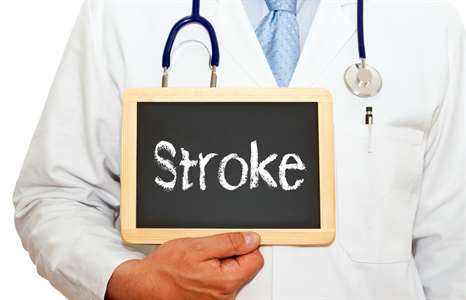
Experiencing a stroke can be terrifying, especially since it can often seem to strike without warning, leaving quite a bit of devastation in its wake. Understanding what a stroke is, the importance of a diet after a stroke and recognizing high risk factors are key to preventing the onset or aiding in the recovery from a stroke.
What is a stroke?
An article from the Medical News Today aptly defines a stroke as:
"... A condition in which the brain cells suddenly die because of a lack of oxygen. This can be caused by an obstruction in the blood flow, or the rupture of an artery that feeds the brain. The patient may suddenly lose the ability to speak, there may be memory problems, or one side of the body can become paralyzed."
The article, which identifies the two main types of a stroke as "ischemic" and "hemorrhagic," summarizes that both types of stroke result in a lack of blood flow to the brain. This buildup of blood puts too much pressure on the brain which causes the "attack." Depending on where the stroke occurs, a stroke can result in problems ranging from weakness in an arm or leg to paralysis and even death. Many will experience weakness on one side of the body, difficulty speaking and problems with bladder and incontinence.
Though nearly anyone can suffer from a stroke, risk factors include: a family history of strokes, high blood pressure, high cholesterol, diabetes, obesity and cardiovascular disease. While some of these risk factors may be hereditary, many risk factors can be kept in line through proper diet and nutrition.
Understanding your diet after a stroke
If you have already experienced a stroke or have any of the above risk factors, healthy eating can help reduce your risks of having another stroke. Proper nutrition can greatly reduce stroke risk factors such as obesity, high cholesterol, high blood pressure and diabetes.
The National Stroke Foundation provides an easy-to-understand guide to diet after a stroke. They recommend that you limit saturated fats, salt intake and alcohol, as well as incorporate a balanced diet that includes plenty of water, a variety of healthy fruit and vegetables, wholegrain breads and cereals, lean meats and low-fat dairy products.
Maintaining a healthy weight and getting proper nutrition is essential to reducing your risk of stroke recurrence. Additionally, it may also help prevent the onset of stroke by helping prevent obesity, a primary factor in developing other risk factors for stroke.
Resources for additional help
Having a stroke or finding that you are at risk for a stroke can be a frightening experience in and of itself; while living with necessary lifestyle changes, such as diet after a stroke, may seem overwhelming, your diet after a stroke does not have to be boring or overwhelming at all.
BistroMD focuses exclusively on nutrition and healthy weight management to help optimize your diet after a stroke. Designed by Dr. Caroline J. Cederquist M.D., (a renowned bariatric physician specializing in medical weight management) bistroMD provides an outstanding menu of delicious, chef-prepared meal plans, delivered directly to your door.
At bistroMD, we cook with the freshest ingredients and have over 200 recipes and a customizable menu so you should have no problem finding something to satisfy your taste buds.
Every bite you take follows this proven approach for healthy weight loss. Our program provides 1,100-1,400 calories daily with 40-50% total caloric intake from lean, adequate protein, 20-25% of calories from healthy fats, and 30-35% from complex carbohydrates.
It only takes a few weeks to start seeing results. You don’t have anything to lose, but the fat!
We have a men's and a women’s program with the option to receive five-or-seven-days’ worth of healthy meals delivered to your door.
The two programs range from $130-$160 and EATS, our essential and tasty snacks are just $1.50 per snack. Women receive two snacks per day and men receive three snacks per day.







